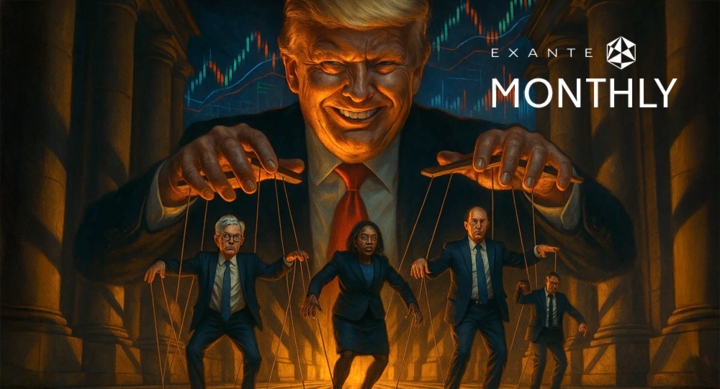- US GDP: GDP increased at an unrevised 2.1% annualised rate last quarter. Growth for the first quarter was revised up to a 2.2% rate from the previously reported 2.0% pace.
- The US labour market is still tight with initial jobless claims remaining around the 200,000 mark.
- US inflation accelerated for a second straight month to 3.7% in August from 3.2% in July. Core inflation, which excludes food and energy, slowed for the fifth month to 4.3%.
- The Conference Board Consumer Confidence Index declined in September to 103, down from 108.7 in August.
- Flash PMIs in the US, UK and Eurozone were down again in September. In the US the S&P Global US Composite PMI came in at 50.1 in September 2023, slightly down from 50.2 in August, indicating a broad stagnation across the private sector. This marked the fourth consecutive month of declining PMI and signalled the weakest overall performance since February. In the UK business activity continues to fall as the S&P Global/CIPS Flash UK Composite Output Index showed a drop to 46.8 in September from 48.6 in August. In the Eurozone the HCOB flash Composite PMI did rise slightly to 47.1 from 46.7 in August, but this is still contractionary territory.
Yield curves
Rates across the US Treasury yield curve were up in September. The yield on the 2-year Treasury note, which is highly sensitive to expectations for the Fed Funds rate, is at 5.13%, up from 4.4% at the start of the year. The benchmark 10-year US Treasury note yield is at 4.63%, while the yield on the 30-year bond is at 4.75%.
Investor worries about the higher for longer scenario and indications from the Fed that they anticipate, at best, two rate cuts in 2024 with the possibility of further hikes in Q4 2023, pushed Treasury yields to their highest in over 16 years in September. Fed Chair Jerome Powell reiterated that the Fed is prepared to raise rates further if appropriate and that it intends to hold policy at a restrictive level until it is confident that inflation is moving sustainably down toward their objective.

Source: BlackRock
The US growth outlook remains positive but weaker with concerns about the impact a fourth government shutdown may have on the economy growing The labour market is still tight. Yields have been surging throughout the latter part of September.as the Fed's hiking cycle is still unresolved. The dollar is also likely to remain stronger for longer than previously expected. Despite the threat of a Federal shutdown looming large, the USD is strengthening as investors turn to the USD as a safe haven. As noted by Bloomberg news, investors are facing an unprecedented third straight year of losses as the $25.5 trillion Treasuries market is wracked by liquidity concerns, ever-tighter Fed policy, increased US government issuance, and the volatility created as investors get forced out of large futures bets.

Source: Bloomberg 8 am EDT 28 September 2023
Global Economic and Market Review
In the UK, the inflation story is improving as headline inflation was down to 6.7% in August from July’s 6.8% and core inflation rose by 6.2% in the 12 months to August, down from 6.9% in July. However, there are growing concerns of a slowdown with the S&P Global composite PMI falling to 46.8 in September from 48.6 in August. The BoE has stated that it now expects GDP to rise only slightly in 2023 Q3. It also believes that underlying growth in the second half of 2023 is also likely to be weaker than expected. As noted by KPMG, household excess savings are broadly used up and the effect of higher interest rates is now feeding through to investment intentions, transaction volumes and corporate insolvencies, with the full impact on households and housing sectors yet to be felt.
Markets are now anticipating that the ECB is at the peak of its tightening cycle. There are still potential headwinds including a rise in food and energy inflation due to geopolitical events and poor weather conditions. Italian yields have surged after the government cut its growth forecasts for this year and next and hiked its budget deficit targets, while Germany's 10-year yield hit a fresh 12-year highs in late September. According to Worldgovernmentbond.com, the spread between Germany’s 10 Year and Italy’s 10 year is -196.1 bp, down 29 basis points this month. Germany’s spread vs the US is - 172.2 basis points.
It is clear that differences in domestic interest rate paths in addition to rising recession risks will continue to drive yields. Sterling has fallen to six month lows against a strengthening USD as markets are pricing in the idea that the Bank of England (BoE) is done hiking interest rates as the economy deteriorates, even though UK inflation continues to cool. Sterling is set for the biggest monthly drop since August 2022, down more than 4% in September, as money markets are pricing in no further BoE rate hikes this year.
Key risks
The USD is likely to continue to strengthen, driven by growing divergences in growth with its peers, higher rates and potential further risk-off moves as geopolitical tensions, particularly between Europe and China, rise. Bond prices could still weaken if the ECB feels it needs to continue tightening in the face of rising oil prices despite the drop in inflation in its biggest economy and continuing signs of economic slowdown.
- Inflation fails to fall in line with projections, weighing on asset prices. Further tightening may cause interest-sensitive stocks in the technology sector, financials, telecommunications, and infrastructure to decline further.
- Policymakers actions lead to over tightening credit conditions. Growing concerns over stagnation in the US and Europe with business activity in decline in Europe’s biggest economy, Germany, could cause the Euro to fall further against the USD.
- Geopolitical flare-ups and Climate change. The continuation of the conflict in Ukraine and the disagreement in the US congress over continuing support for Ukraine may feed into furtherUSD strengthening and rising yields.
DISCLAIMER: This article is provided to you for informational purposes only and should not be regarded as an offer or solicitation of an offer to buy or sell any investments or related services that may be referenced here.
While every effort has been made to verify the accuracy of this information, EXT Ltd. (hereafter known as “EXANTE”) cannot accept any responsibility or liability for reliance by any person on this publication or any of the information, opinions, or conclusions contained in this publication. The findings and views expressed in this publication do not necessarily reflect the views of EXANTE. Any action takenupon the information contained in this publication is strictly at your own risk. EXANTE will not be liable for any loss or damage in connection with this publication.
Questo articolo viene fornito all'utente soltanto a scopo informativo e non deve essere considerato come un'offerta o una sollecitazione di un'offerta di acquisto o di vendita di investimenti o servizi correlati che possono essere qui menzionati.






